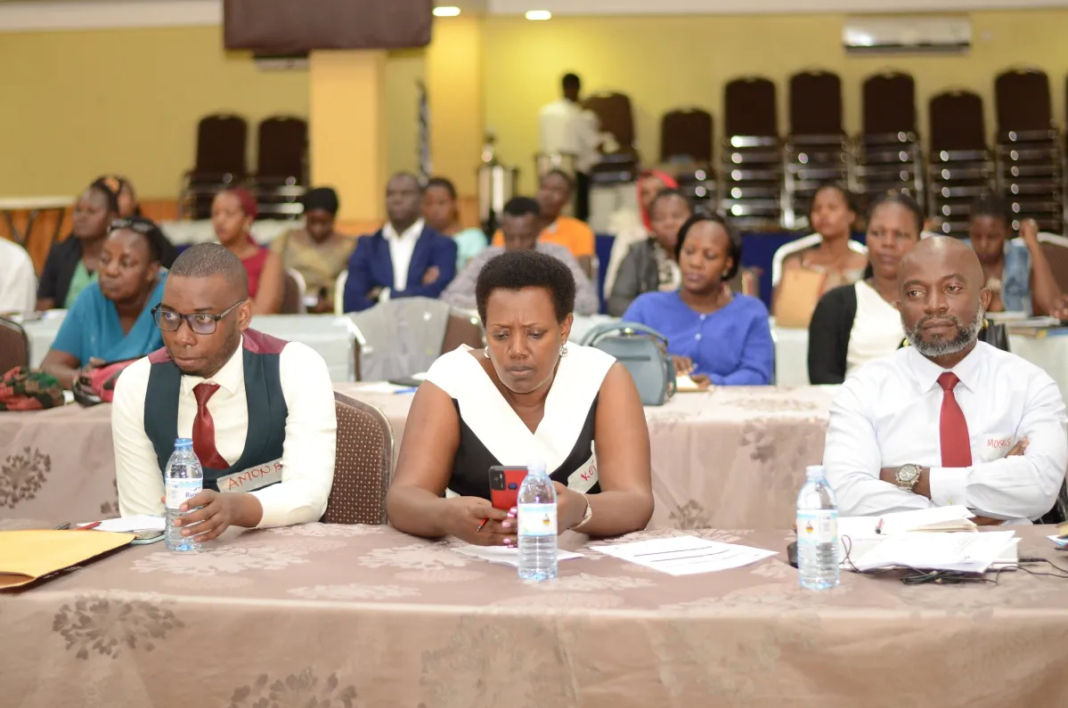| Dfcu bank has urged SMEs to incorporate sustainable practices in their business plans so as to protect the environment and attract funding. Speaking during a training workshop for over 150 SMEs in Kampala on Tuesday, 06 June 2023, Josephine Mukumbya, the Managing Director of Agribusiness Development Centre, emphasized the value of SME readiness in terms of government relations and funding opportunities. Mukumbya emphasized the need for SMEs to adopt sustainable practices that minimize their impact on the environment on top of striving to create inclusive work environments and prioritizing the well-being of their employees, ultimately making a positive impact on society. Earlier this year, dfcu Bank in collaboration with ADC and GOPA Worldwide Consultants committed to skill 200 SMEs under the ongoing Business Accelerator Program (BAP). The training is to help attendees (SMEs), to understand the factors that affect the sustainability and future performance of their organizations. The training comprises 150 SMEs in several sectors including Agribusinesses, Manufacturing, processors and hospitality among others. The new ESG module will be incorporated in the BAP curriculum being implemented by ADC and fully sponsored by dfcu. Martin Birungi, responsible for projects at Besepo Ug Limited, shared his journey. Besepo initially operated primarily as a lumbering company. However, they soon realized the alarming rate at which forests were being depleted, prompting them to initiate a reafforestation program. Besepo said he made a strategic decision to convert their waste materials like offcuts, branches, and sawdust from timber production, into briquettes. Briquettes not only contribute to the reduction of charcoal consumption, but also provide an alternative source of clean energy. Jimmy Byaruhanga, the GOPA Representative, highlighted the impact of the program on SMEs, as evidenced by numerous testimonials. “The program plays a vital role in assisting SMEs in obtaining certifications from UNBS and the International Organization for Standardization (ISO),” he said. Byaruhanga urged SMEs to take the time to gain a comprehensive understanding of the factors that may hinder their access to finance, emphasizing the importance of implementing an ESG strategy. By incorporating sustainable practices into their operations, SMEs can be more competitive. Ronald Kasasa, the Head of Business Banking at dfcu, emphasized their commitment to ESG principles. It is expected that businesses comply with the ESG standards, and in case of any shortcomings, measures must be taken to rectify the issues within a specified timeframe to get funding. Ronald Kasasa, the Head of Business Banking at dfcu, emphasized their commitment to ESG principles. “To support businesses in this regard, dfcu has established a dedicated unit that provides knowledge, guidance, and advisory services to both internal management and customers, assisting them in aligning with ESG principles and enhancing their positioning,” Kasasa said. By implementing continuity plans, he said dfcu aims to provide innovative and sustainable financing options. “For example, by investing in assets with long-term returns such as solar energy, this approach allows dfcu to remain flexible and support businesses in their sustainability efforts,” he said. While closing the event with a certificate awarding ceremony, Kasasa emphasized dfcu’s commitment to ESG principles and the organization’s continued efforts to foster partnerships with businesses that prioritize sustainability |








